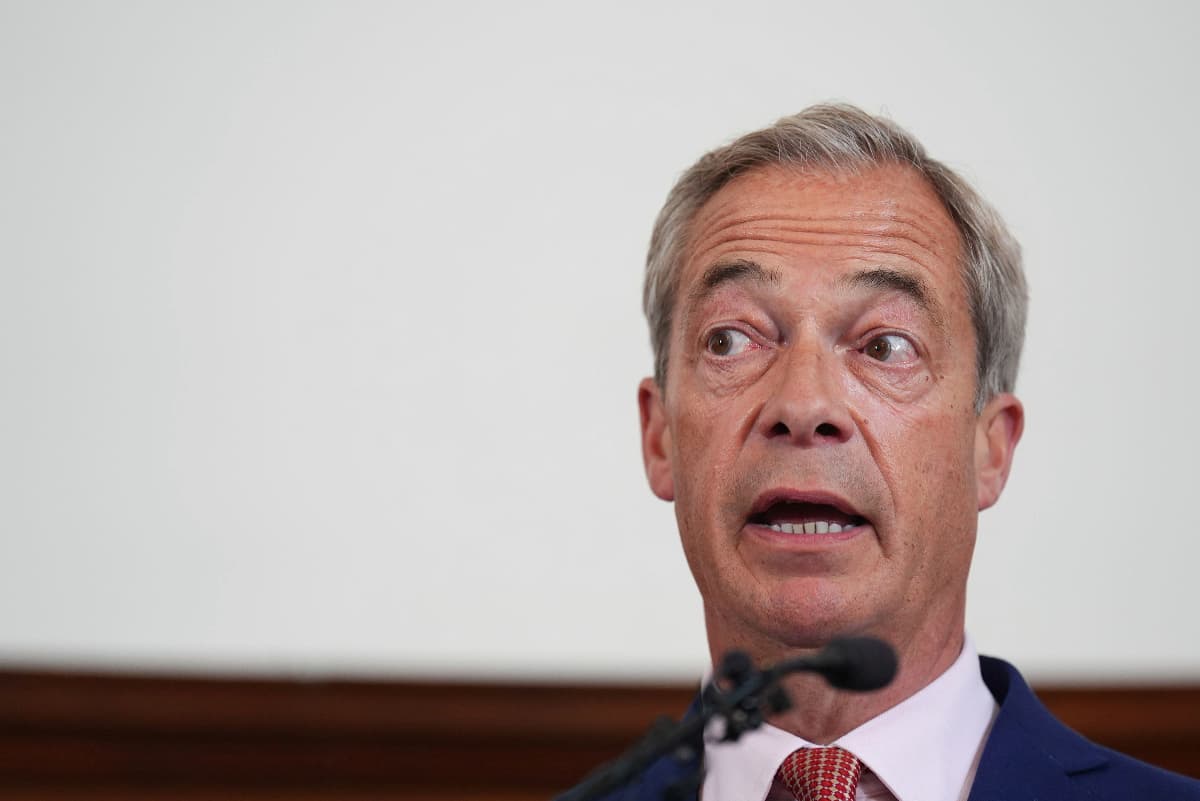With Nigel Farage’s Reform UK Surging in Polls Against Tories, Opportunity Beckons for Rapprochement on Right
With a Labour landslide looming, it is time for Reform and the Conservative Party to focus less on who will serve as the people’s opposition to a left-wing Government.

With just less than three weeks before UK electors go to the polls to decide their next government, the main event right now is Nigel Farage and Reform UK. To what new heights will these challengers to the “conservative” status quo climb? And to what depths will the Conservative Party sink?
At his opening remarks before a televised debate Thursday evening, Mr. Farage had a stunning announcement: “Just before we came on air we overtook the Conservatives in the national opinion polls. We are now the opposition to Labour.”
The latest YouGov survey has Reform outpolling the Tories by 1 point, 19 percent to 18 percent. Labour continues to lead with 37 percent.
When asked next day if this was an “existential” moment for the Government, Premier Rishi Sunak was understandably dismissive of Mr. Farage’s bravado. “I always say the poll that matters is the one on July 4,” he responded. “But if that poll was replicated on July 4, it would be handing Labour a blank cheque to tax everyone.”
He then returned to a favorite fear-mongering threat. “At the end of the day on July 5, one of two people’s going to be Prime Minister — Keir Starmer or me.”
Mr. Farage, however, remains bullish. At a news conference Friday, he predicted that Reform UK will win in excess of 6 million votes at the election, and certainly more than the Conservatives. “I don’t know where the ceiling is,” he said.
Ergo Mr. Farage’s claim to the title of “official” opposition. He figures that, with both parties having such similar governing attitudes — Conservative protestations to the contrary — and with the defeated Tories more interested in recriminations than active politicking, the task of reporting Labour’s misdeeds will fall to him.
Furthermore, if Reform does poll more votes than the Tories but still trails them in seats won, Mr. Farage argues this is a clear signal that first-past-the-post must give way to proportional representation.
In such a system, seats in Parliament would be won not by personal victories in individual constituencies, but on the basis of a formula corresponding to the popular vote percentage parties earn nationwide.
Such “un-conservative” thinking is one good reason why Reform UK may be well-suited to the role of opposition, if not of government.
It is understandable if Mr. Farage feels compelled to become “radical” in response to political infelicities, “to remove all that is bad,” to quote Benjamin Disraeli.
Yet a proportional representation system that privileges party candidate lists over individual voters, that shifts focus to an elitist center from popular constituencies, may do more harm than good.
If the Brexit promise was to foster maximal liberty and minimal government, the aim must be to devolve powers back to the people, not construct new ways to concentrate them at Westminster.
Nevertheless, feeling chuffed, Mr. Farage will be attending a forthcoming fundraiser for President Trump in a wealthy London enclave. He definitely sees the long-term benefits of consolidating contacts within the conservative movement in America.
Mr. Farage must not lose sight, however, of concentrating conservative forces in the UK. It cannot have escaped attention that were the YouGov polling numbers of the right combined, they would equal Labour’s at 37 percent.
For the average UK voter, the battle for the privilege to be standard-bearer of the right is significant. Yet it must not be permitted to overshadow the looming prospects of a Labour Government.
Sir Keir Starmer may be deficient in details of what his administration will do, but the general outlines are visible for all to see.
Realignment with EU policy, tax rises, and leftist cultural fetishes will be the order of the day, once Sir Keir enters Downing Street.
It is time for Reform and the Conservative Party to focus less on who will serve as the people’s opposition to a Labour Government. Now is the moment for a rapprochement of the two parties of the right, co-operating to stymie what is being called the imminent leftist “super majority” in Parliament.
If neither Reform nor the Tories see fit to submerge partisan squabbles at this crucial pre-election interlude, then these putative delegates of the people’s interests will have squandered the right to be called the representatives of the people’s trust.

